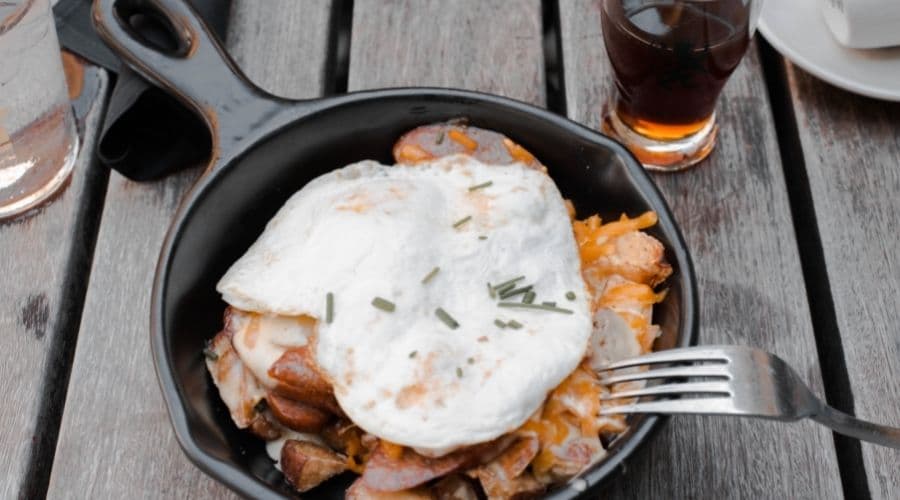Cast iron cookware is an essential kitchen staple for any home chef. It is durable, versatile, and can withstand high temperatures without breaking down. Cast iron cookware is also extremely heat-efficient, meaning that it retains heat well and is excellent for browning and searing food.
But the question is, does cast iron cookware work on electric stoves?
The answer is yes. Cast iron cookware also has the added benefit of being able to be used on a variety of stovetops, including electric. However, there are different types of electric stoves that require different types of care to properly use cast iron cookware on them.
On coil-style electric stoves, make sure that your cookware is placed on the center of the coil and use low to medium heat.
When using a glass-top electric stove, you’ll want to use Enameled cast iron skillet or Dutch oven for best results. If case you use normal cast iron cookware, the chances are that it will scratch the glass-top surface but with proper precautions, it is possible to prevent the damage.
It is also important to note that because of the way electric stoves heat up, cast iron cookware can take a bit longer to heat up. That being said, the end result will still be delicious and worth the wait!
Contents
How to use Cast Iron on Electric Glass Top Stove Safely?
Here are some tips for using cast iron cookware safely on electric glass top stoves so that you can get the best results:
Don’t drop it
Don’t drop the skillet. If it falls and hits the glass top, it could shatter. Cast iron is a heavy metal and it will leave a dent in the glass. Make sure to use caution when moving it around on the stovetop. So always be careful when using cast iron on Electric Glass Top Stove
Don’t Drag It
Cast iron has a rough bottom surface, so don’t drag it across the stovetop. If you do, the rough surface will scratch your glass. So always be careful when moving it on the stovetop. If you do it, it can cause scratches and marks that will be difficult to clean.
Avoid using high heat
When using a cast iron pan on an electric glass top stove, it is important to avoid using high heat. The high heat can cause the glass top to break, and it can also damage the pan. It is best to use low or medium heat when cooking with a cast iron pan on a glass-top stove. The extreme heat can damage the glass top stove.
Choose the Right
When using a cast iron skillet on a glass-top stove, it’s important to choose the right size. If you have a small cast iron skillet, it may not heat evenly on a glass-top stove and could cause damage to the surface of your stove.
A larger skillet can also be a problem because it may be too heavy for the glass top to support. The best size cast iron skillet to use on a glass top stove is one that is between 10 and 12 inches in diameter.
Preheat your cast iron for 10 minutes
Cast iron cookware needs to be preheated for 10 minutes before using it on the stovetop. This will help to ensure even heat distribution and prevent the underside of the cookware from sticking. This will help the pan heat evenly and cook your food properly.
Use at lower heat
Cast iron is a popular material for cooking pots and pans because it can withstand high temperatures without warping or melting. However, using cast iron on an electric glass-top stove can be tricky. The best way to use cast iron on this type of stove is to cook at a lower heat setting. This will allow the cast iron to heat evenly and prevent it from sticking.
FAQs
What are the benefits of cast iron cookware?
What is the best way to care for my cast iron cookware?
1. Always clean your cookware with soap and water after each use.
2. Dry your cookware thoroughly after cleaning, especially if you live in a humid climate.
3. Apply a light coating of vegetable oil or cooking spray to the cookware before storing it.
4. Store your cookware in a dry place where it will not be exposed to moisture or direct sunlight.
What is the difference between a skillet and a Dutch oven?
Cast iron cookware is one of the oldest and most versatile types of cookware available. Its benefits include even cooking, no chemicals leaching into food, and a natural nonstick surface. Cast iron cookware is also affordable and lasts for many years with proper care.
What is the best way to care for my cast iron cookware?
Cast iron cookware is a great investment because it lasts for a very long time with proper care. The best way to care for your cast iron cookware is to season it before each use. To season your cookware, heat up some oil in it and then wipe it out. Here are a few tips on how to take care of your cast iron cookware:
1. Always clean your cookware with soap and water after each use.
2. Dry your cookware thoroughly after cleaning, especially if you live in a humid climate.
3. Apply a light coating of vegetable oil or cooking spray to the cookware before storing it.
4. Store your cookware in a dry place where it will not be exposed to moisture or direct sunlight.

